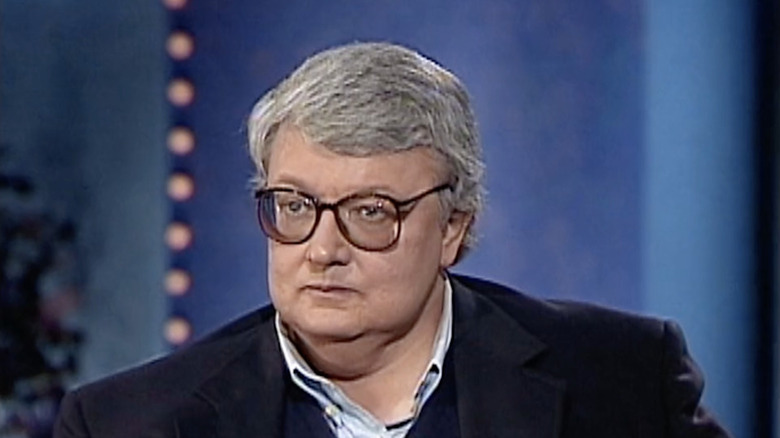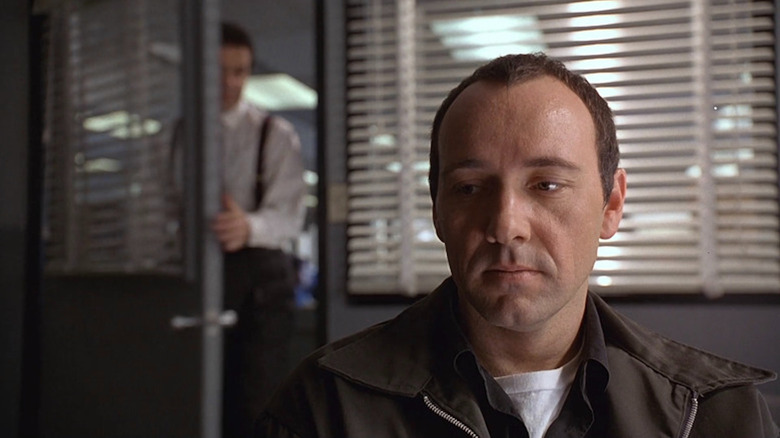In his practically 50 years as movie critic for the Chicago Solar-Instances, Roger Ebert had a fame for being lucid, passionate, and, when a movie occurred to rub him the mistaken manner, cranky. As seen in his weekly sparring classes with the Chicago Tribune’s Gene Siskel on their syndicated evaluation present (which bore a number of titles, however might be greatest often known as “On the Motion pictures”), Ebert may unleash withering invective at a movie that wasted his time and/or insulted his intelligence. He was notorious for his hatred of the Eighties spate of slasher movies, in addition to his “How may they do that to Jennifer Jason Leigh” one-star pan of “Fast Times at Ridgemont High.” Filmmakers have been often stung sufficient by his ire that they named characters after him who have been snobby, mean-spirited, or downright monstrousness. (The Eborsisk in “Willow,” for instance, was a hideous amalgam of Ebert and Siskel.)
Ebert is, after all, hardly alone on this. Any critic whose job requires them to observe over 200 films yearly goes to want to blow off some steam on occasion. As a reader, these opinions may be cathartic if you agree with the unwell sentiment or infuriating if you happen to land on the opposite finish of the spectrum. I like Ebert as a author and a thinker, however I feel he did his craft a horrible disservice when he not solely rejected David Lynch’s “Blue Velvet” as “unworthy” artwork, but additionally accused the director of getting taken emotional liberties along with his actors, particularly Isabella Rossellini. Although the movie completely places Rossellini by means of the wringer, Ebert had no proper to stage such an accusation. How may he know what was happening in Lynch’s thoughts or Rossellini’s? That he caught to his weapons after interviewing Lynch on the New York Movie Competition made him look all of the extra wrongheaded. (Ebert’s additionally liable for the critical blight that is Rotten Tomatoes, however let’s take one grievous offense at a time.)
This, nonetheless, is how criticism works. Once you’ve achieved it lengthy sufficient, there are movies that can draw that opprobrium out of you and get you going in opposition to the grain of typical knowledge. Once you disagree, it is jarring. Once you agree, you rejoice. There are occasions if you stroll out of a critically acclaimed film and marvel if the remainder of the world is pulling a prank on you, so studying a evaluation that offers voice to your bewildered consternation is sort of a tall drink of ice water within the desert.
Here is one time when Ebert’s opposite viewpoint slaked my very own vituperative thirst.
Roger Ebert thought The Typical Suspects was somewhat too common
When “The Typical Suspects” hit U.S. theaters on August 16, 1995, it was lavished with acclaim by the vast majority of critics. The timing of its launch was essential. Critics had simply endured a summer season crammed with the standard assortment of low-aiming mainstream entertainments, and have been thus grateful for a well-cast thriller that made them suppose. Most reviewers singled out the performances whereas expressing amusement or delighted befuddlement at the movie’s wallop of an ending.
Ebert, nonetheless, was not delighted one bit. In his one-and-a-half-star review, he famous that his displeasure was bolstered by a second viewing of the movie, which he discovered to be one thing of an empty magic trick. He complained that the plot did not totally add up and at last threw up his palms by writing, “To the diploma that I do perceive, I don’t care.”
“I favor to be amazed by motivation, not manipulation,” stated Ebert, which continues to be my drawback with the film as properly. This is not in regards to the characters being unlikeable or troublesome to root for. The nice movies noir of the Forties and ’50s are awful with lowdown scoundrel protagonists. It is about the best way the story is instructed from the angle of Kevin Spacey’s Verbal Kint, whose identify may as properly have been Unreliable Narrator, and the way the movie’s characters, regardless of how properly performed, are resolutely one-dimensional.
Ebert accurately clocked Christopher McQuarrie’s Oscar-winning screenplay as extra of an train than a film. The critic drove one final nail within the coffin with the ultimate sentence of his evaluation: “To the diploma that you’ll want to see this film, it is going to be due to the shock, and so I’ll say no extra, besides to say that the ‘answer,’ when it comes, solves little — except there may be actually little to resolve, which can be a chance.”
In his practically 50 years as movie critic for the Chicago Solar-Instances, Roger Ebert had a fame for being lucid, passionate, and, when a movie occurred to rub him the mistaken manner, cranky. As seen in his weekly sparring classes with the Chicago Tribune’s Gene Siskel on their syndicated evaluation present (which bore a number of titles, however might be greatest often known as “On the Motion pictures”), Ebert may unleash withering invective at a movie that wasted his time and/or insulted his intelligence. He was notorious for his hatred of the Eighties spate of slasher movies, in addition to his “How may they do that to Jennifer Jason Leigh” one-star pan of “Fast Times at Ridgemont High.” Filmmakers have been often stung sufficient by his ire that they named characters after him who have been snobby, mean-spirited, or downright monstrousness. (The Eborsisk in “Willow,” for instance, was a hideous amalgam of Ebert and Siskel.)
Ebert is, after all, hardly alone on this. Any critic whose job requires them to observe over 200 films yearly goes to want to blow off some steam on occasion. As a reader, these opinions may be cathartic if you agree with the unwell sentiment or infuriating if you happen to land on the opposite finish of the spectrum. I like Ebert as a author and a thinker, however I feel he did his craft a horrible disservice when he not solely rejected David Lynch’s “Blue Velvet” as “unworthy” artwork, but additionally accused the director of getting taken emotional liberties along with his actors, particularly Isabella Rossellini. Although the movie completely places Rossellini by means of the wringer, Ebert had no proper to stage such an accusation. How may he know what was happening in Lynch’s thoughts or Rossellini’s? That he caught to his weapons after interviewing Lynch on the New York Movie Competition made him look all of the extra wrongheaded. (Ebert’s additionally liable for the critical blight that is Rotten Tomatoes, however let’s take one grievous offense at a time.)
This, nonetheless, is how criticism works. Once you’ve achieved it lengthy sufficient, there are movies that can draw that opprobrium out of you and get you going in opposition to the grain of typical knowledge. Once you disagree, it is jarring. Once you agree, you rejoice. There are occasions if you stroll out of a critically acclaimed film and marvel if the remainder of the world is pulling a prank on you, so studying a evaluation that offers voice to your bewildered consternation is sort of a tall drink of ice water within the desert.
Here is one time when Ebert’s opposite viewpoint slaked my very own vituperative thirst.
Roger Ebert thought The Typical Suspects was somewhat too common
When “The Typical Suspects” hit U.S. theaters on August 16, 1995, it was lavished with acclaim by the vast majority of critics. The timing of its launch was essential. Critics had simply endured a summer season crammed with the standard assortment of low-aiming mainstream entertainments, and have been thus grateful for a well-cast thriller that made them suppose. Most reviewers singled out the performances whereas expressing amusement or delighted befuddlement at the movie’s wallop of an ending.
Ebert, nonetheless, was not delighted one bit. In his one-and-a-half-star review, he famous that his displeasure was bolstered by a second viewing of the movie, which he discovered to be one thing of an empty magic trick. He complained that the plot did not totally add up and at last threw up his palms by writing, “To the diploma that I do perceive, I don’t care.”
“I favor to be amazed by motivation, not manipulation,” stated Ebert, which continues to be my drawback with the film as properly. This is not in regards to the characters being unlikeable or troublesome to root for. The nice movies noir of the Forties and ’50s are awful with lowdown scoundrel protagonists. It is about the best way the story is instructed from the angle of Kevin Spacey’s Verbal Kint, whose identify may as properly have been Unreliable Narrator, and the way the movie’s characters, regardless of how properly performed, are resolutely one-dimensional.
Ebert accurately clocked Christopher McQuarrie’s Oscar-winning screenplay as extra of an train than a film. The critic drove one final nail within the coffin with the ultimate sentence of his evaluation: “To the diploma that you’ll want to see this film, it is going to be due to the shock, and so I’ll say no extra, besides to say that the ‘answer,’ when it comes, solves little — except there may be actually little to resolve, which can be a chance.”





















